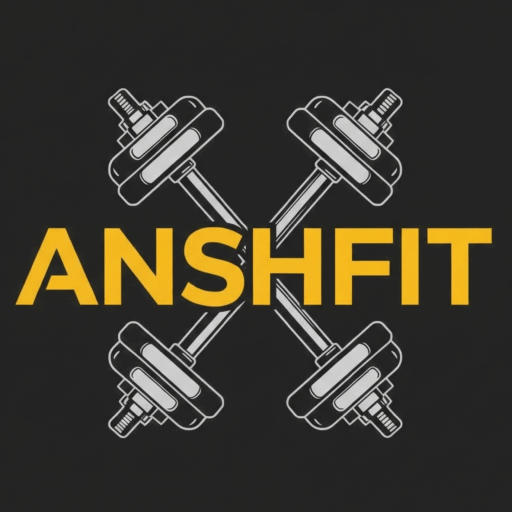“The Muscle Recovery Myth: Why Training Less Like Mike Mentzer Builds More”

Muscle recovery is one of the most overlooked aspects of fitness, yet it plays a crucial role in muscle growth and overall performance. Many lifters follow the traditional approach of frequent training, believing that more workouts lead to more gains. However, Mike Mentzer, a bodybuilding legend and advocate of High-Intensity Training (HIT), challenged this conventional wisdom. His principles of muscle recovery emphasized quality over quantity, asserting that less training with optimal recovery leads to superior muscle growth.
In this post, we will explore Mentzer’s unique principles of muscle recovery, compare them with traditional recovery methods, and help you understand how to optimize your training for maximum results.
Traditional Muscle Recovery: More Volume, More Frequency

In the traditional bodybuilding model, muscle recovery is often seen as something that happens between workouts but is not necessarily prioritized. The common belief is:
◉Train each muscle group 2-3 times per week
◉Follow high-volume workouts with multiple sets and reps
◉Keep rest periods short to maintain workout intensity
◉Sleep well and eat enough protein for muscle repair
This conventional approach has worked for many, but it fails to recognize the importance of individual recovery needs. Many gym-goers experience plateaus, overtraining, and even injuries because they train too frequently without allowing their muscles to fully recover.
Mike Mentzer’s High-Intensity Approach to Muscle Recovery

Mike Mentzer, inspired by his mentor Arthur Jones, believed that muscle recovery should dictate training frequency—not the other way around. His philosophy revolved around training less but with maximum effort, allowing muscles to recover fully before the next session.
[Key Principles of Mentzer’s Muscle Recovery Theory]
1. Less Frequent Training for Maximum Recovery]
Instead of training each muscle group multiple times a week, Mentzer believed that high-intensity training required longer recovery periods. He recommended working out only once every 4-7 days, giving the muscles ample time to repair and grow.
Why?
- When you train with maximum intensity, you inflict greater micro-tears on muscle fibers.
- If you don’t allow full recovery, you disrupt the muscle-building process.
- Overtraining leads to stagnation, not growth.
2. One Set to True Failure
Mentzer argued that one set performed to absolute failure was enough to stimulate muscle growth. Instead of performing multiple sets, he encouraged lifters to push their muscles to complete exhaustion in a single, highly intense set.
Why?
- If a muscle is truly pushed to its limit, additional sets are unnecessary.
- Overloading the muscle with more sets can increase recovery time without additional benefits.
- More training does not mean more growth—it just means more recovery is required.
3. The Science of Supercompensation
Mentzer’s approach was rooted in the concept of supercompensation—the process by which muscles rebuild stronger after full recovery.
- If you train too soon, you interrupt this process.
- If you train at the right time (after full recovery), you maximize muscle growth.
- The key is to wait until the muscles are fully replenished before stressing them again.
4. The Role of Sleep & Nutrition in Recovery
While traditional methods emphasize just getting enough rest and eating protein, Mentzer went further:
- He insisted on deep, quality sleep because growth hormone release peaks during sleep.
- Caloric intake should match muscle recovery needs—eating enough but not excessively.
- He also emphasized mental relaxation, as stress can slow down recovery.
Mentzer’s Muscle Recovery vs. Traditional Methods: A Side-by-Side Comparison
| Aspect | Traditional Recovery | Mentzer’s Recovery |
|---|---|---|
| Training Frequency | 4-6 times per week | Once every 4-7 days |
| Number of Sets | Multiple sets per exercise | One set to true failure |
| Intensity | Moderate, spread over multiple sets | Maximum intensity in a single set |
| Recovery Time | Short (48 hours) | Long (up to a week) |
| Focus | More training = more growth | More recovery = better growth |
| Risk of Overtraining | High | Low |
Why Mentzer’s Muscle Recovery Principles Work

◉ Prevents Overtraining: Excessive training leads to fatigue, burnout, and halted progress. Mentzer’s method allows full muscle recovery.
◉ Maximizes Growth: Muscles grow outside the gym, not in it. Longer recovery leads to stronger and denser muscles.
◉ Time-Efficient: Spending less time training but with higher intensity yields better results.
◉ Sustainable: Mentzer’s approach is easier to maintain long-term, unlike traditional high-volume training.
How to Apply Mentzer’s Recovery Principles

1. Reduce Training Frequency
Instead of training 5-6 days a week, try working out only 2-3 times a week. Prioritize high-intensity sessions over frequent, moderate workouts.
2. Train to True Failure
Pick one set per exercise, but push yourself until you can’t lift another rep with proper form. This stimulates maximum muscle fiber recruitment.
3. Listen to Your Body
Mentzer stressed that muscle soreness, fatigue, and decreased strength are signs that recovery isn’t complete. If you feel exhausted, take extra rest days.
4. Sleep Like a Champion
Aim for 7-9 hours of deep sleep per night to allow hormonal recovery and muscle repair.
5. Optimize Nutrition
- Prioritize protein intake (1.2-1.5g per pound of body weight).
- Eat healthy fats and complex carbs for sustained energy.
- Stay hydrated—muscles need water for recovery!
Final Thoughts: Less is More

Mike Mentzer’s radical approach to muscle recovery may seem counterintuitive, especially in an industry that glorifies high-volume training. However, his principles are backed by logic and results—focusing on training less but recovering more leads to optimal muscle growth and long-term progress.
If you’ve been training hard but not seeing results, it’s time to rethink your recovery strategy. Instead of pushing through fatigue and risking overtraining, train smarter by applying Mentzer’s principles—your muscles will thank you!


